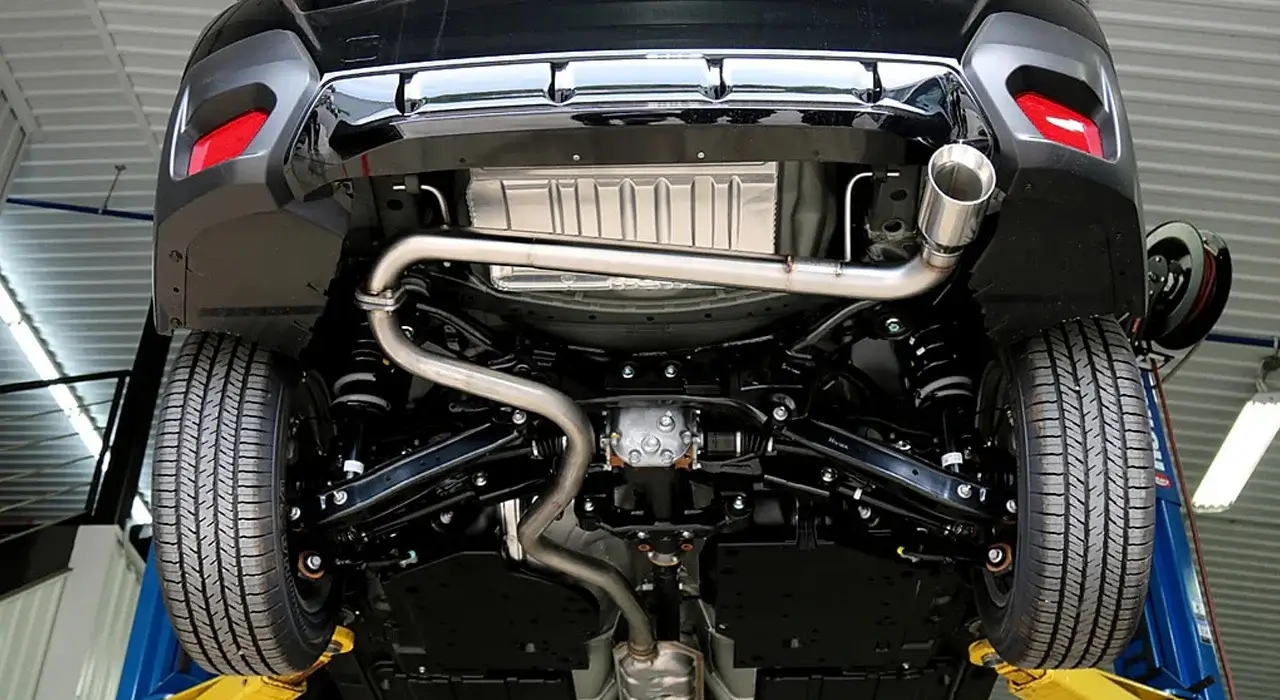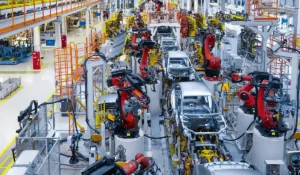Ever wanted to gain little attention as you drive down the street? A muffler delete is one way of ensuring that you’ll definitely get noticed. So, if you’re curious to know more, then this guide is just for you.
We’ll look at what’s involved in getting a muffler delete carried out on your vehicle and the likely costs. We’ll also take a look at the pros and cons and things you need to consider before getting your muffler removed.
What is a Muffler Delete?
A muffler delete is the removal of the muffler from the exhaust system of a vehicle. This results in a louder exhaust note and increased exhaust flow. Many people choose to do this modification for aesthetic or performance reasons. If you’re looking to turn heads with your car’s exhaust, a muffler delete is certainly one way to do it!
How Much Does a Muffler Delete Cost?
So how much does a muffler delete cost? That depends on a few factors, such as the make and model of your vehicle and whether you choose to do the work yourself or have it done professionally. Generally speaking, you can expect to pay anywhere from $100 to $500 for a muffler delete.
Of course, if you’re handy with tools and feel confident in removing and installing exhaust components, you could always save yourself some money by doing the job yourself.
Suggestion: 9 Best Exhaust Tips For Deep Sound To Buy Online In 2022
What Will Affect the Cost of a Muffler Delete?
A few things can affect the cost of a muffler delete.
Make of Car
First, as we mentioned earlier, the make and model of your vehicle will play a role in how much you’ll end up paying. Certain cars, such as BMWs and Porsches, have more complex exhaust systems that can be more difficult (and therefore more expensive) to work on.
Type of Exhaust Pipe
The type of exhaust pipe you have will also affect the cost of a muffler delete. Mild steel is the cheapest option, but its life may be shorter than the more expensive and durable metals such as stainless steel or titanium.
While they will cost more upfront, you won’t need to replace them as often, making them a better long-term purchase.
DIY or Professional
Another factor that can affect the cost is whether or not you choose to have the work done professionally. If you’re comfortable working on your car, you can save some money by doing the job yourself. However, if you’re not confident in your ability to remove and install exhaust components, it’s probably best to leave it to the professionals.
Popular For You: 8 Best Brakes and Rotors for Toyota Tundra (2022 Review)
What Does the Muffler Do?
The muffler’s primary purpose is to reduce noise, and it uses a series of chambers and baffles to cancel out sound waves, resulting in a quieter exhaust note. The trade-off is that this process also reduces exhaust flow, which can have a negative impact on performance.
How Much Louder Will My Car Be After a Muffler Delete?
The noise increase will vary depending on the car and exhaust system. Generally speaking, you can expect the exhaust to be about 10-25% louder after a muffler delete. Some people find this to be an ideal balance between performance and sound, while others may want their car to be even louder.
Suggestion: 8 Best Professional Automotive Diagnostic Scanner To Buy Online In 2022
What are the Pros and Cons of a Muffler Delete?
There are both pros and cons to deleting your muffler. On the plus side, you’ll see an increase in performance thanks to improved exhaust flow. You’ll also have a more aggressive sounding exhaust note that is sure to turn heads.
On the downside, your car will be much louder, and you may run into issues with local noise ordinances. Additionally, deleting your muffler can void your car’s warranty.
Is a Muffler Delete Legal?
This is a difficult question to answer since laws vary from place to place. In some areas, there are no restrictions on muffler deletes. However, in other locations, they may have very strict noise ordinances that could result in fines or other penalties if you’re caught driving with a deleted muffler. It’s always best to check local laws before making any modifications to your car.
Are There Any Other Modifications I Should Do When Deleting My Muffler?
If you’re deleting your muffler for performance reasons, there are a few other modifications you might want to consider. These include installing a high flow catalytic converter and upgrading to a larger diameter exhaust pipe. Both of these mods will help to further improve exhaust flow and performance.
Can a Muffler Delete Damage My Car?
If installed correctly, a muffler delete will not damage your car. However, if done improperly, it could result in leaks or other exhaust issues. That’s why we always recommend having a professional do the work for you.
All things considered, a muffler delete is a relatively simple and inexpensive modification that can make a significant impact on the look and sound of your car. So if you’re looking to add some personality to your ride, a muffler delete is definitely worth considering!
Are There Alternatives to a Muffler Delete?
If you’re not interested in a muffler delete, there are other ways to achieve a similar effect. One option is to install a performance exhaust system, which will often include a muffler delete.
Another option is to replace your factory muffler with an aftermarket one that’s designed to produce a louder sound. Whichever route you choose, there are plenty of choices available to help you get the perfect sound for your car!






